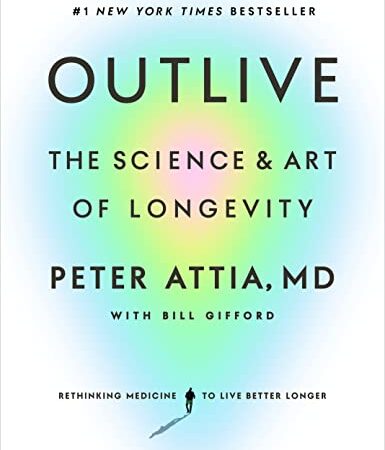No match for action. What does it mean? It’s natural to hit the pause button and reflect on life’s ups and downs. And while reflection is essential, It’s no match for action.
Dwelling in the past can turn into a slippery slope called “rumination,” which can hold you back and ultimately doesn’t get you anywhere. But the good news is that tapping into these reflections offers the opportunity to transform them into decisive actions on the path of progress.
No Match for Action: Rumination vs. Reflection
The goal of reflection is learning and moving forward. Conversely, rumination chains you to your past, clouding your vision of the future. So, the next time you find yourself in the rearview mirror, ask yourself, “Am I reflecting on progress, or am I stuck in rumination?” There’s no match for action, and it is especially effective if you follow a problem-solving framework and adopt a growth mindset.

Taking The Wheel: Problem-Solving and Mindset
Successful people tend to be excellent problem solvers and surround themselves with others of the same mindset. They don’t just think; they do! They refresh outdated skills and embark on a path of constant learning. They network with others for inspiration and ideas. By focusing on what is reasonable and possible, these individuals break the cycle of mediocrity and sprint towards excellence. Your mindset, after all, dictates your reality. And remember, there’s no match for action when it comes to leveling up your life!
Strategies To Move from Thought to Deed
Transforming your thoughts into tangible results is where the magic happens. But how do you make that leap? The good news is you don’t have to reinvent the wheel. Let’s dive into some tried-and-true strategies that act as your roadmap from contemplation to execution. These are your building blocks and remember, there’s no match for action when you put these into play.
- Set SMART Goals: Clarity is critical. Setting SMART goals includes being specific and working toward measurable goals that are achievable, relevant, and time-sensitive. A well-defined aim paves the way for decisive action.
- Growth Mindset: This concept, introduced by Carol Dweck, fuels the belief that your abilities aren’t fixed but can improve with dedication and effort. A growth mindset is no match for action because it pushes you to act even when times get tough.
- Action Planning: Encountered an obstacle? No worries! It’s your chance to analyze, strategize, and make a move. With a solid action plan, you’re setting yourself up for victory.
- Take Baby Steps: Big aspirations can be daunting. Break them down into digestible tasks. Every small step you take is no match for action that’s stagnant.
- Develop Resilience: Failure isn’t your enemy; it’s your teacher. Resilient people harness the power of setbacks to fuel their journey forward.
-
Product on saleReusable Smart Notebook And Stylus For Home, Office, CollegeOriginal price was: $44.99.$39.68Current price is: $39.68.
-
Product on saleBestselling Longevity Book – Outlive By Peter Attia MDOriginal price was: $32.00.$18.99Current price is: $18.99.
-
Inspirational Spiral Notebook – Ruled Line Writing Journal – The Greater The Storm The Brighter The Rainbow$10.90
No Match for Action: Your Golden Ticket to Success
Reflection should be a launchpad, not a lounge chair. Once you’ve mined the insights, shoot them into the sphere of action. You’re not just daydreaming about success; you’re making it your reality. But beware of negative self-talk.
Negative self-talk can be the dream-killer that holds us back. Learning from mistakes is excellent, but the learning should be quick. A rapid analysis can propel you towards your goals faster. When reaching your full potential, there’s no match for action.
Adjust your action plan as you go along, but whatever you do, keep moving! Reviewing and tweaking are part and parcel of the journey, but remember, there’s no match for action when you are consistent and persistent.
The Consistency Key
Being consistent is like having a superpower. Every time your activity level diminishes, your results get pushed further into the future. Make consistency your best friend, and you’ll find no match for action in delivering the desired results. Luckily, in this tech-savvy age, you’re spoilt for choice with tools designed to make consistency a way of life. Let’s delve into some of these game-changers.
Smartwatches for Health Monitoring
Smartwatches like the Apple Watch or Fitbit track health markers such as heart rate, sleep quality, and daily activity levels. These devices remind you to stay active and actively pursue your health and fitness goals. You can even set reminders to move, ensuring there’s no match for action regarding your health.
Scheduling Planners for Time Management
Digital planners like Google Calendar or Asana, and even physical planners like the Passion Planner, can help you organize your day-to-day tasks. You can more effectively plan and allocate your time and energy by setting specific timelines and reminders. Planning makes it easier to stick to your goals, proving that there’s no match for action.
Meal Planning Services for Nutritional Goals
Meal delivery services like Nutrisystem, Diet-To-Go, or HelloFresh offer tailored meal plans that align with meeting your goals, whether losing weight or improving health markers like cholesterol levels. Suppose these options aren’t a fit for you for whatever reason. If so, you can create your menu plan from scratch and use apps that help track your calorie intake, such as Google Fit or MyFitnessPal.
Habit-Tracking Apps for Overall Consistency
Apps like Habitica or Streaks gamify the habit-forming process, offering rewards for consistency and making daily routines more engaging. Their positive reinforcement strengthens your commitment to consistency in any area of life.
So, choose the tools that help you integrate consistency into your daily life. And take note of how they help keep you on track. After all, when you’re consistent, there’s no match for action in delivering the desired results.
Wrapping Up: Action Is Your MVP
To sum it up, while reflection has its merits, it’s only a stepping stone on the path of action. It’s time to take that leap of faith, backed by an action-oriented approach and a can-do mindset. After all, there’s no match for action when purpose and passion fuels your pursuits.
Take action today, and turn your dreams into your day-to-day reality!
Updated 11/16/2023








